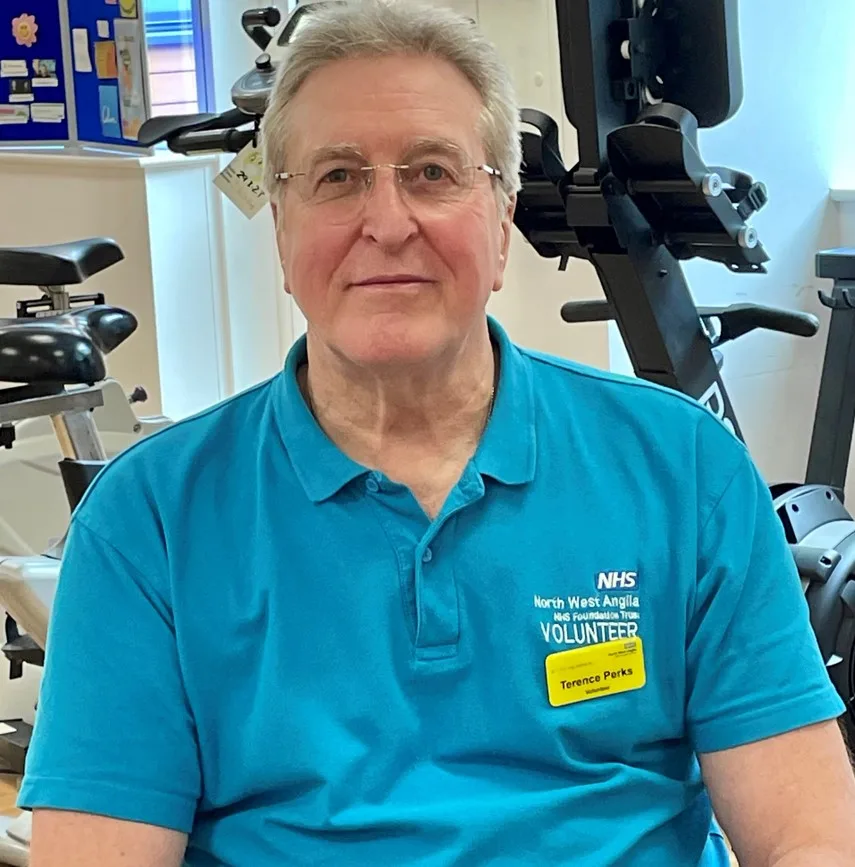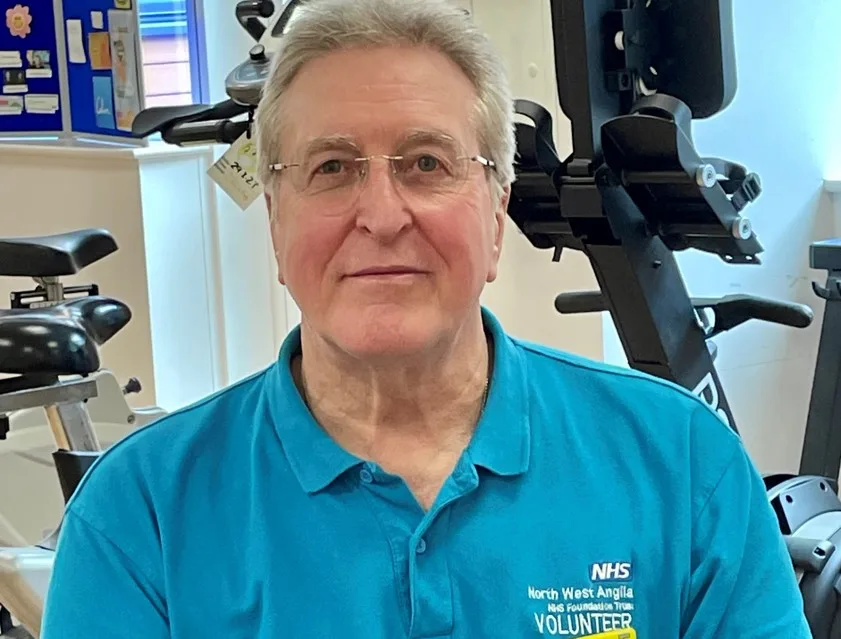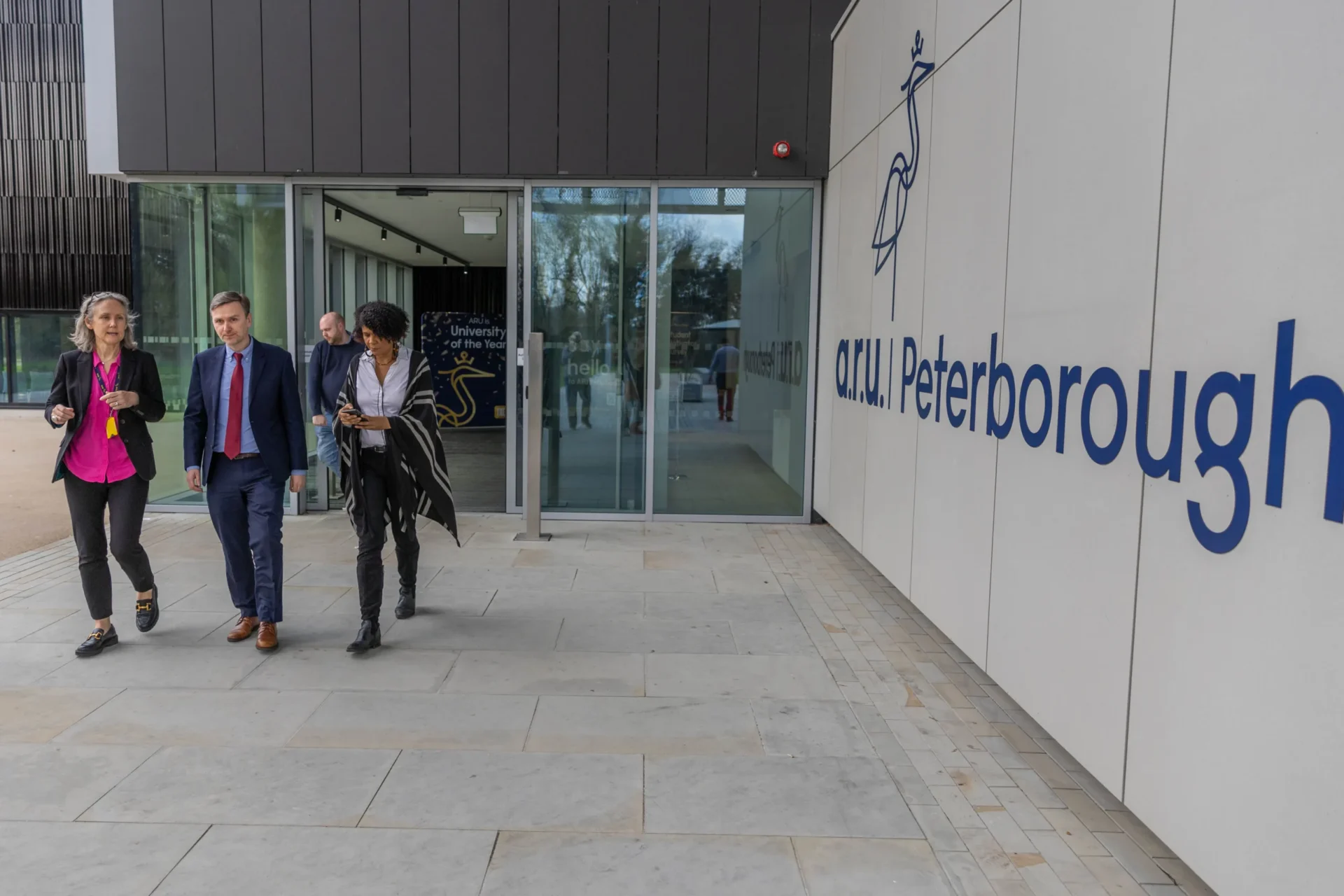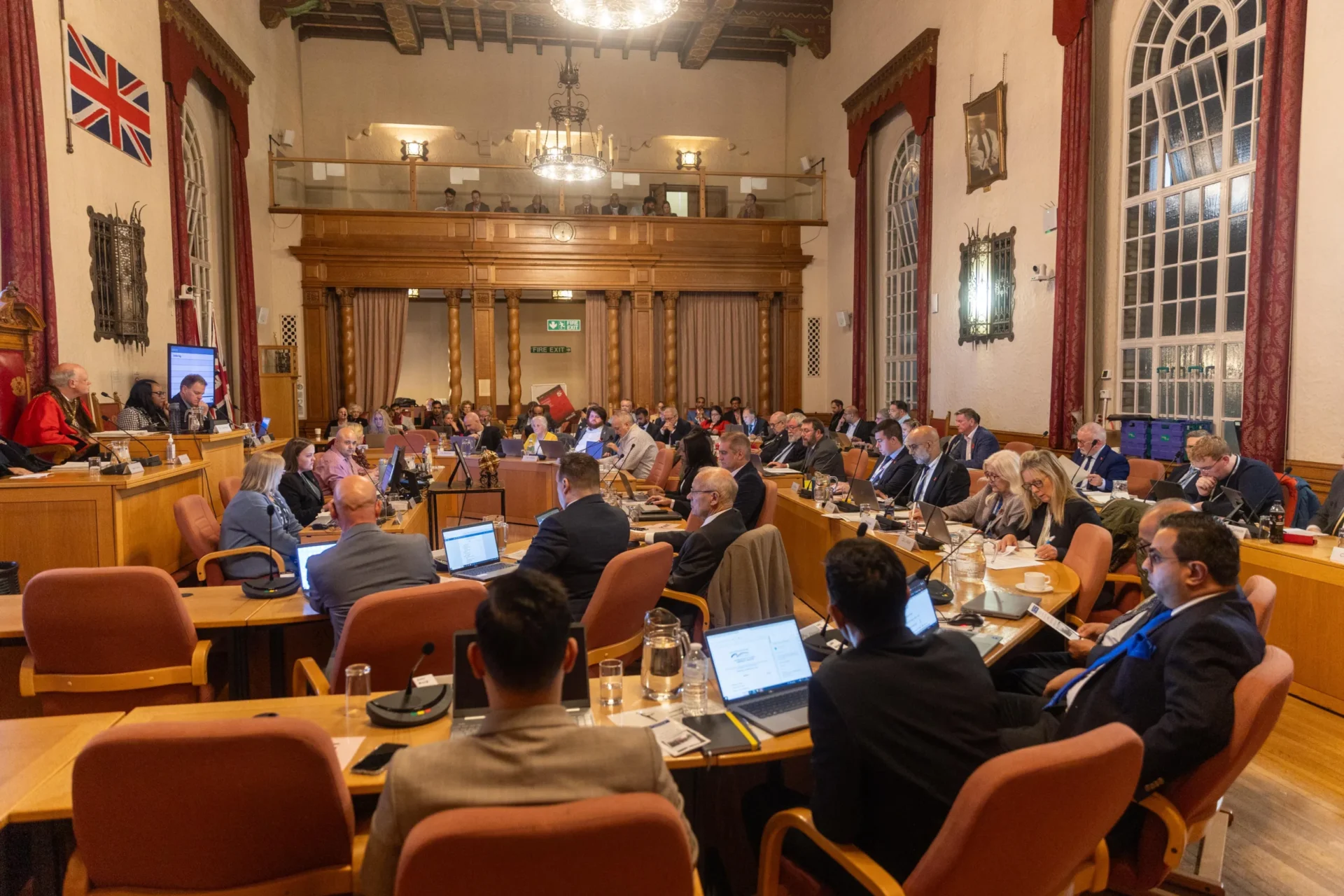From going to the gym three times a week and playing cricket, tennis, and badminton regularly – Terry Perks thought he was in reasonably good health.
But with no apparent warning signs, fit and healthy Terry suffered a stroke at the age of 61 – leaving him hospitalised, robbing him of his independence, battling mobility issues and being unable to speak for six months.
Ten years on, and Terry is an important advocate for stroke patients at Peterborough City Hospital and within his local community.
A North West Anglia NHS Foundation Trust volunteer, he now uses some of his spare time to support stroke patients as part of the hospital’s Speech and Language Therapy (SLT) service.
This is through ward visits or over a cup of coffee, but always with the emphasis on rehabilitation, support, education, and hope for the future.

One of the main aims of Terry’s role – under the remit of SLT team leader Mel Lord – is to help raise awareness of aphasia (difficulty speaking, writing and often with understanding language too) as a result of having a stroke.
He said: “Having suffered a stroke myself, I can certainly empathise with the patients and really wanted to try and give something back for the care I received myself. I now volunteer with the service one a day a week.
“I have had first-hand experience of aphasia, which made every day communications and tasks very difficult. At one point I couldn’t remember my banking security details but didn’t have the ability to pick up the phone and speak to someone.
“I chat to patients on the ward, or I take them for coffee and explain to them what help, and support is available, while stressing the importance – from my own experience – of practising their speech every day and at every opportunity.”
SLT team leader Mel says Terry’s input into the service is invaluable: “We recognise what a huge impact suffering a stroke can have on people’s lives and the difficulty in speaking or communicating after a stroke is one of the most common after effects.
“Terry is able to tell his own story and share his own experiences with patients, giving them hope and goals for what could be a lengthy recovery period – encouraging them to have a positive experience through their own rehabilitation.”
Terry – who has now regained his love of golf, bowling, and cycling – has also met many friends in the local community through his other voluntary work for the Peterborough Stroke Group, via the Stroke Association, and Stroke East of England Voices.
According to the Stroke Association – 100,000 people each year in the UK suffer a stroke. Strokes are the largest cause of disability in the UK and the fourth biggest killer.
The month of May marks Stroke Aphasia Awareness Month and more information is available from www.stroke.org.uk





















